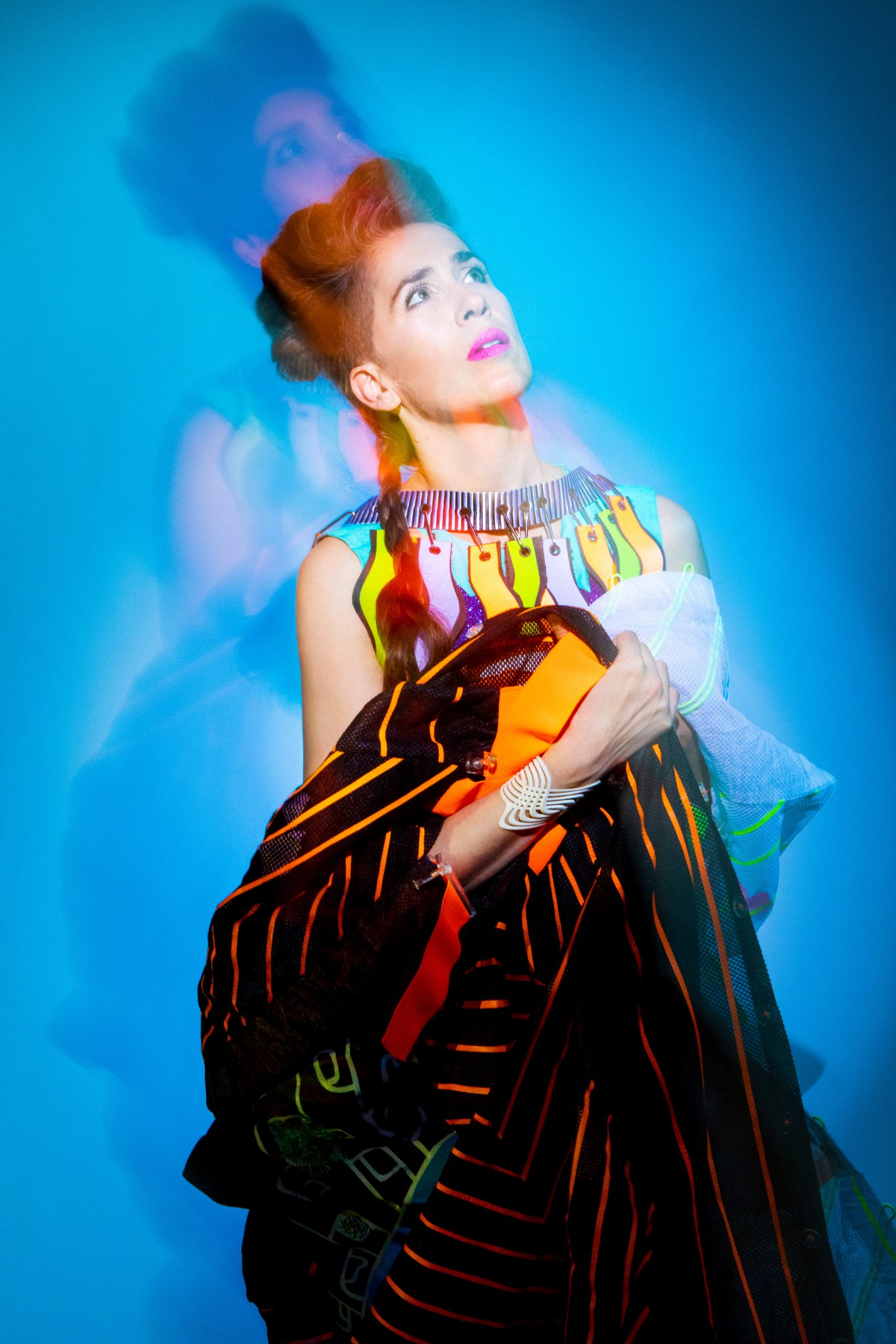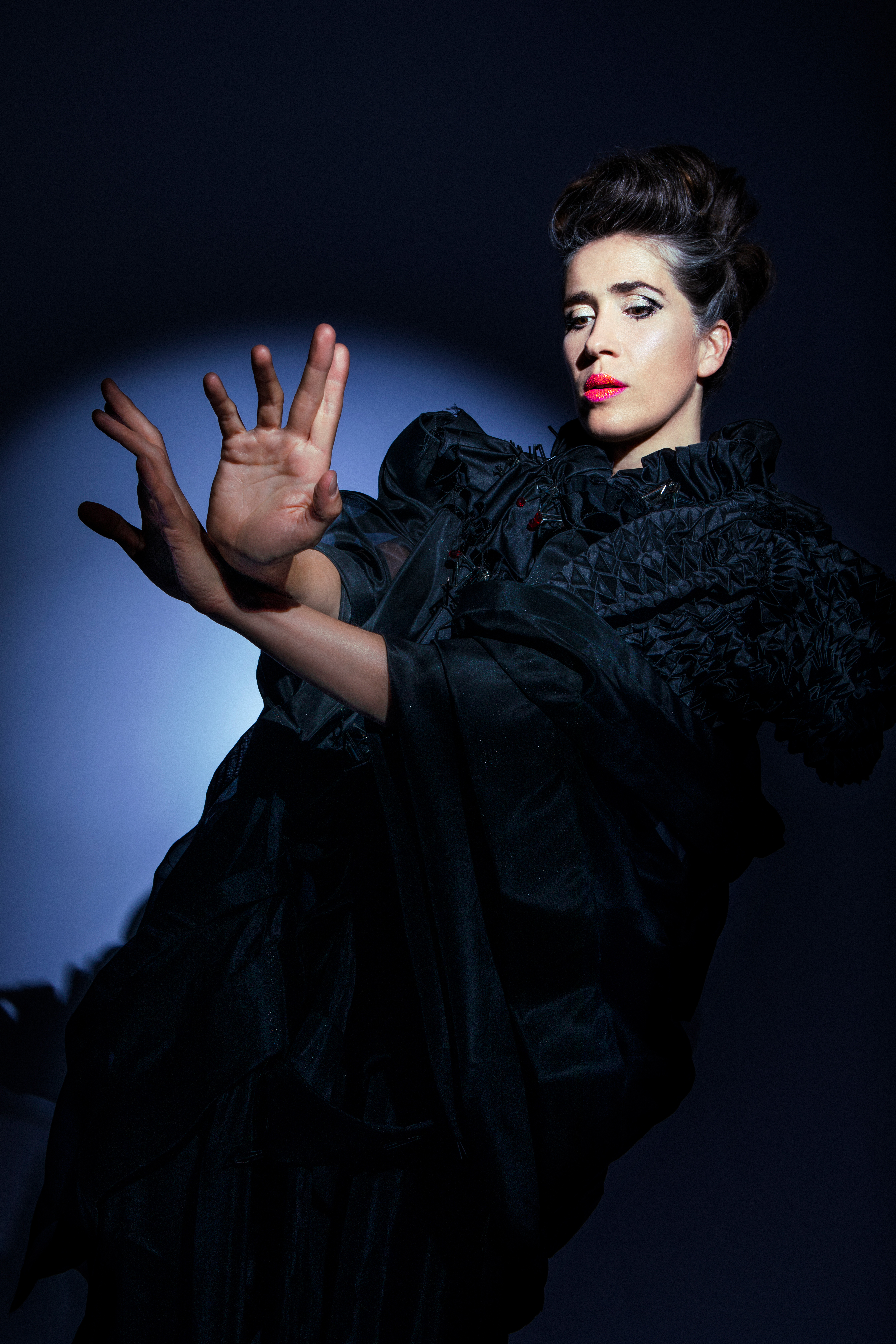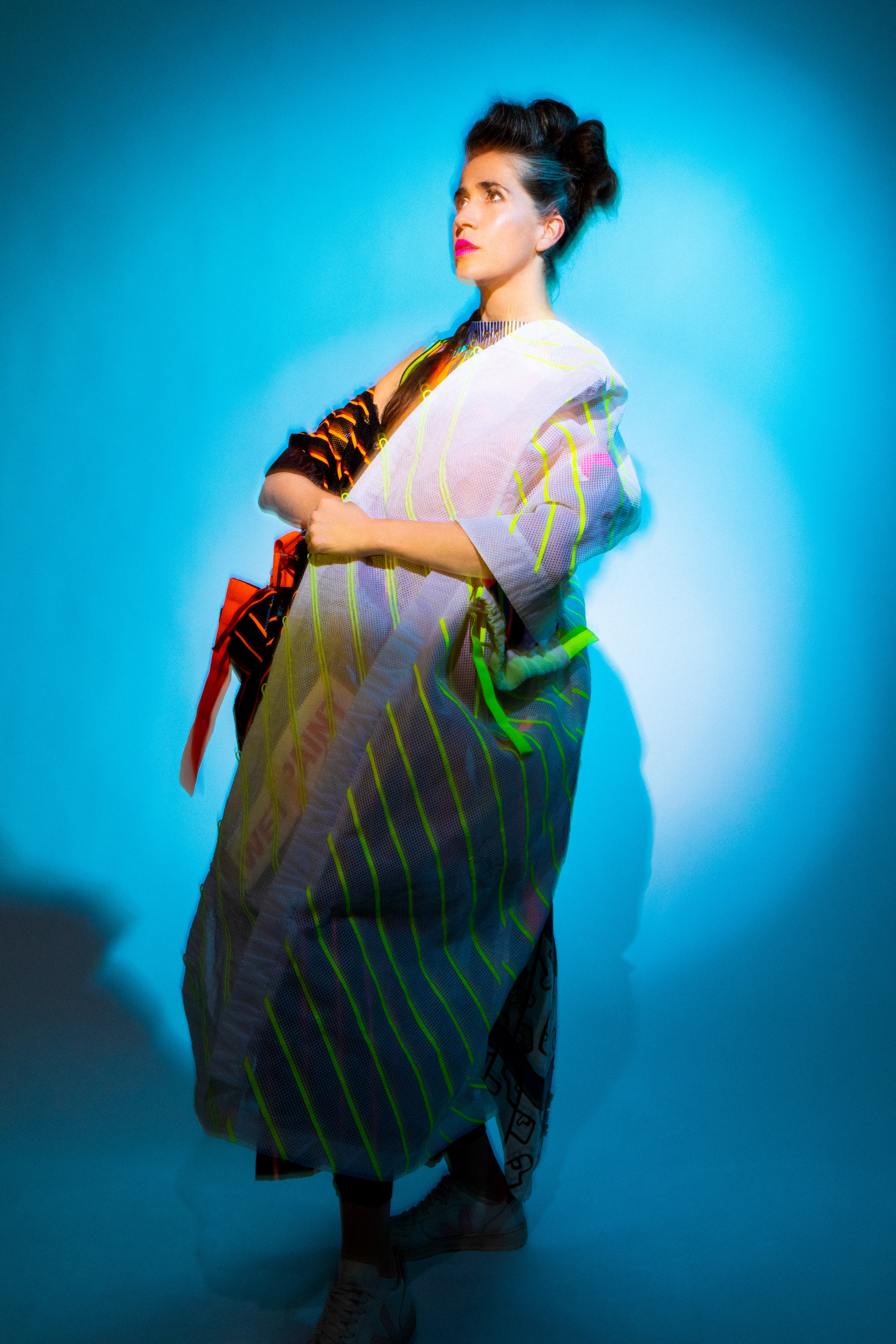
Photos / ALEXANDRA ARNOLD
Story/ ERICA RUSSELL
Photo Assistants / SARAH GARDNER and ARIELLE ARNOLD
Special thanks to Sarah Gardner Studio
For some listeners, Imogen Heap conjures nostalgia for the early-to-mid-2000s, the era in which she came to prominence as one of electronic music’s mightiest and most enigmatic muses. A few years after debuting with her alternative rock album iMegaphone in 1998, she teamed up with producer Guy Sigsworth, a longtime collaborator and friend, to form Frou Frou. In 2002, the electronic pop duo released their first and only album, Details. The critically acclaimed record saw commercial success two years after its release thanks to the inclusion of ambient single “Let Go” on the soundtrack to Zack Braff’s 2004 film, Garden State.
The following year, the British singer-songwriter and producer released her sophomore solo album, Speak for Yourself, which leaned much more experimental and electronic than her first. The album spawned hit singles “Goodnight and Go” — later reimagined by Ariana Grande on her 2018 album, Sweetener — and “Hide and Seek,” which was featured in a pivotal scene on smash teen drama The O.C. and was heavily sampled on R&B star Jason Derulo’s Billboard No. 1 single, “Whatcha Say.” For two decades, her music has served as a coming-of-age soundtrack for so many fans, but nostalgia be damned: Heap is not tethered to the sound of yesterday. Instead, she’s determined to be the voice of tomorrow.
An independent artist frustrated with the music industry’s sweeping failure to sustain and support musicians in the streaming era, in 2018 Heap announced her Creative Passport project. Nestled under the broader initiative of Mycelia, her research and development organization for music makers, Creative Passport is a digital blockchain technology application that aims to empower and enable musicians by “simplifying and democratizing collaborations,” getting artists credited and paid quickly and fairly for their work.
“The big hope is that we create an integrated flow and flourishing system for the music industry,” Heap explains of the project, which is currently in its grassroots stage and seeking funding. “Something that makes sense for everyone so there’s no fear for where the next paycheck is going to come from, or this sense of, ‘This is working for everyone else, but not for me.’ We want to get rid of that.”
The idea for Creative passport was sparked about four years ago when Berklee University — which coincidentally awarded Heap an honorary Doctor of Music degree in July 2019 — released a paper analyzing the state of the music industry which reported that between 20-50 percent of all music royalties don’t reach their rightful earners. “With that incredible nugget of information, along with this blue-sky thinking of what one musician could do to help change the industry, it now looks like we’re going to be developing these thoughts further together,” Heap shares excitedly.

dress, ALEJANDRA BURGUETTE
While it will likely take Creative Passport a few years to become fully realized for users, Heap took the project on a test run in 2019 while on her Mycelia World Tour, during which she not only performed but held tech talks and workshops to introduce the application and its many potentials. “There were a lot of music services and labels who were scared of us, thinking we were going to try to flatten the music industry and burn it down and disrupt it, but that’s not what we want to do,” she shares.
“We want to augment it and make it work better by being part of the solution. If we can create a single point to interface with the music industry, that’s the missing piece. We have to empower individual musicians to be part of that solution independently, each doing their bit for the database — to be that connective tissue. Musicians are at the endpoint of every bit of music out there. “
Heap’s Mycelia World Tour also saw the brief return of Frou Frou, with Sigsworth joining the artist for a handful of special performance dates. Initially inspired to reunite on stage after discussing the possibility of a much bigger tour — something which Heap refers to as an “ambitious” multi-act festival that didn’t quite pan out — Frou Frou fans unfortunately shouldn’t get their hopes up for a sophomore album from the two collaborators just yet, even if it has been 17 years since their first.
“I don’t think we’ll have an album or anything in the near future, but it’s never been struck off the to-do list,” Heap says sympathetically. “It was very unplanned when we began. We needed each other. We both came to a point where we were fed up with our labels, so we wanted to join forces and try something new [with Frou Frou]. But right now I’m very happy with what I’m doing and I’m really passionate about these projects. There is pressure out there, but we’re respectful of each other’s space and time. It’s something we don’t want to force. It will just come naturally and magically, and we haven’t felt that just yet. I’m sure we’ll get there.”
Over the course of her career, Heap has left her inimitable mark on countless artists, from the aforementioned Ariana Grande and Jason Derulo to Taylor Swift and actress-singer Emmy Rossum. But the icon is quick to wave away claims that she’s influenced a generation: “I feel like over the past few years people started to say that [I’m an inspiration]. I can walk down the street and not get accosted by too many people. Sometimes I’ll go grocery shopping and someone will give me a knowing smile, but that’s about it. But in the music community, we get to hear amazing stuff that never gets above ground because it doesn’t reach the popular space where the public can really hear it. We get to discover gems.”
“I suppose I’m aware of certain people [like Ariana and Taylor] being fans, and I guess there’s a point in time where [my music] has popped its head up above the popular space now where other people are starting to recognize it in that way,” she continues. “But I don’t think I’m as big an influence as other people think.”
For Grande, who has made her adoration of Heap very public and has a penchant for ethereal layered harmonies and dreamy hooks, the influence is undeniable. In a twist of beautiful artistic serendipity, the two pop stars have been able to connect in meaningful ways over the years, with Heap not only giving Grande a pair of her own Mi.Mu gloves (one of Heap’s musician-friendly tech designs), but her blessing for Grande’s R&B “goodnight n go” cover.
“We send each other texts with our love and affection and catch up when we can. I hope when she comes to London, I’ll go see her show and meet up with her backstage. It’s that kind of relationship,” Heap reveals. “I remember seeing her as a teenager in videos on YouTube, before she started releasing records of her own, singing my songs and thinking, ‘Wow, she’s amazing!’ She had these incredible interpretations of my songs … I’ve found it very easy to bond with another musician. You just come from the same world — even though her world is an extreme version of mine.”
As Heap continues to charge ahead with her boundary-pushing music, technologies and projects, blazing a new, clearer path for the future of musicians, she still recognizes the challenges faced by burgeoning artists today. Her advice? “There’s music-making and then there’s making money off music-making. My advice to somebody who is a music maker and just wants to make music is to just keep making music. If you need to make money off it, things are looking up. There are technologies on the horizon that are going to make it much easier and much simpler — to get rid of the noise and connect the artist with the listener much easier.”
For now, she urges, “try not to lose too much hope.”
“Don’t be disheartened by the fact that it doesn’t make sense and you can’t be discovered and you think it’s unfair. Because it is unfair. It is hard to navigate. You’re not alone and you’re not missing out on some magic trick or some secret way to make it work for yourself. What we hope is that in the next 3-5 years this question of, ‘How do you make it in the music industry?’ is not an issue anymore. You should be able to make the music that you want to make because that’s the thing that’s going to help you get discovered out there. That’s what you need to focus on: your passions and skills.”

